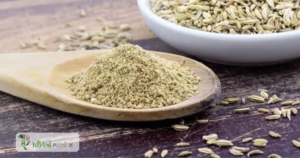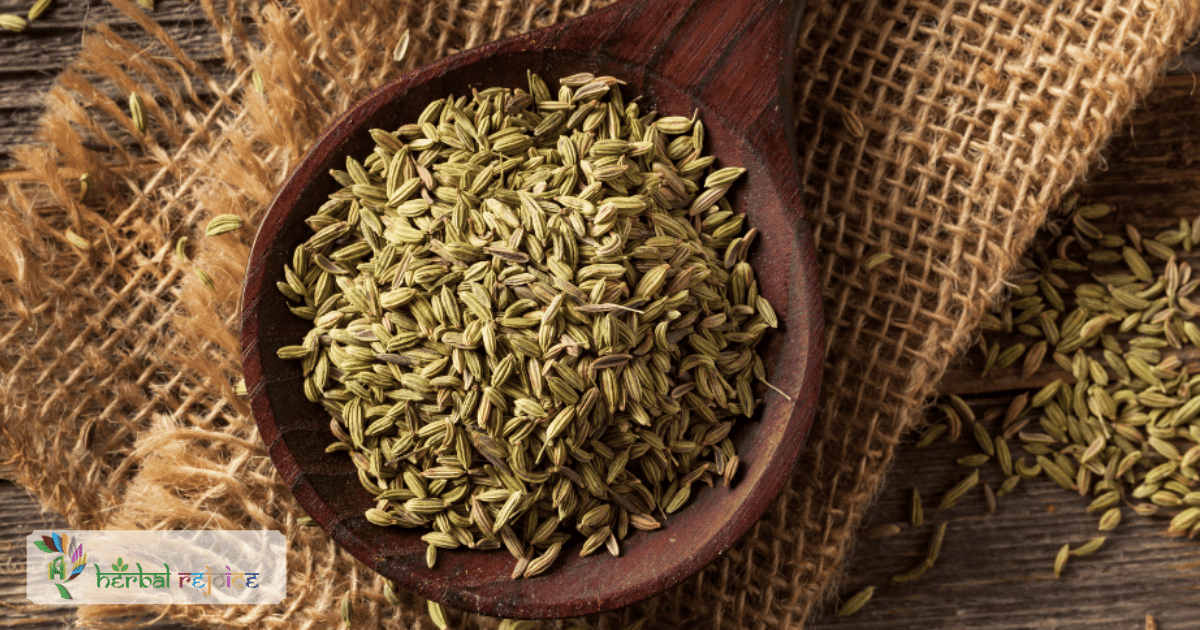Introduction:
Foeniculum vulgare Mill., commonly known as Fennel, is a plant belonging to the Umbelliferae (Apiaceae) family. Native to the Mediterranean region, it is now widely cultivated in Punjab, Assam, Maharashtra, and Vadodara (Gujarat).
In this article, we will explore the traditional uses and health benefits of Foeniculum vulgare, known for its carminative, stomachic, antispasmodic, and anti-inflammatory properties, it has been used in relieving various digestive issues, stimulating appetite, and promoting lactation.
The key components found in fennel, including volatile oils, flavonoids, and coumarins, contribute to its therapeutic effects. Join us as we delve into the remarkable healing powers of this versatile herb.
Fennel – A Plant Full of Power

Habitat and Names Of Fennel
Foeniculum vulgare, commonly known as Fennel, is native to the Mediterranean region. It is cultivated in Punjab, Assam, Maharashtra, and Vadodara (Gujarat). The plant is known by different names in various traditional medicine systems.
English Name: Fennel (Note: Poison hemlock has sometimes been misidentified as fennel)
Ayurvedic Names: Mishreyaa, Mishi, Madhurikaa, Madhuraa, Shatapushpaa, Shataahvaa (Note: Shatpushpaa is equated with Saunf and Shataahvaa with Soyaa, some authors treat these as vice-versa)
Unani Name: Baadiyaan, Saun
Traditional Uses and Medicinal Benefits:
Foeniculum vulgare has been used in traditional medicine for various conditions.
1.Carminative and Stomachic
Fennel is known for its carminative and stomachic properties, relieving bloating, nausea, settling the stomach, and stimulating appetite.
2. Antispasmodic:
Fennel exhibits antispasmodic effects, making it useful in alleviating spasms and gastrointestinal afflictions.
3. Emmenagogue and Galactagogue:
Fennel is known to have emmenagogue properties, promoting menstruation, and galactagogue properties, stimulating the production of breast milk.
4. Anti-Inflammatory and Diuretic:
Fennel possesses anti-inflammatory properties and acts as a diuretic.
Key Components and Health Benefits Of Fennel
Foeniculum vulgare contains various components that contribute to its medicinal properties.
Volatile Oil:
Fennel seeds contain about 8% volatile oil, with anethole being the major component (about 50-60%). Other components found in the oil include fenchone and methylchavicol.
The volatile oil exhibits antibacterial, antifungal, antioxidant, emmenagogue, oxytocic, and abortifacient properties.
Flavonoids and Coumarins:
Fennel seeds also contain flavonoids, coumarins (including bergapten), and sterols.
These components contribute to the therapeutic effects of fennel, such as its antimicrobial properties and inhibitory effects on microorganisms responsible for dental caries and periodontal diseases.
Precautions and Usage Of Fennel
While Foeniculum vulgare offers numerous health benefits, it is important to exercise caution and seek professional advice.
As with any herbal remedy, it is advisable to consult healthcare professionals before incorporating fennel into your healthcare routine, especially if you have underlying medical conditions or are pregnant.
Fennel oil preparations, in particular, are not recommended during pregnancy.
Conclusion:
Foeniculum vulgare, or Fennel, has a long history in traditional medicine for its carminative, antispasmodic, and anti-inflammatory properties. From relieving digestive issues to promoting lactation, fennel offers a wide range of therapeutic applications.
The presence of key components such as volatile oils, flavonoids, and coumarins contributes to its healing powers. Embrace the potential of this versatile herb and its traditional medicinal applications for a healthier lifestyle.
Incorporate fennel into your wellness routine and experience its remarkable health benefits.
Frequently Asked Questions (FAQs):
What is the scientific name of fennel?
The scientific name of fennel is Foeniculum vulgare Mill.
Where is fennel native to?
Fennel is native to the Mediterranean region.
What are the traditional uses of fennel?
Fennel has been traditionally used as a carminative and stomachic, relieving bloating, nausea, and stimulating appetite. It also has antispasmodic properties and is known to promote lactation.
What are the key components found in fennel?
Fennel contains volatile oils, with anethole being the major component. It also contains flavonoids, coumarins, and sterols.
What are the health benefits of fennel’s volatile oil?
The volatile oil in fennel exhibits antibacterial, antifungal, antioxidant, emmenagogue, oxytocic, and abortifacient properties.
Can fennel be used to relieve digestive issues?
Yes, fennel is known for its carminative and stomachic properties, making it useful in relieving bloating, nausea, settling the stomach, and stimulating appetite.
Does fennel have any antimicrobial properties?
Yes, the components found in fennel, such as flavonoids and coumarins, contribute to its antimicrobial properties, inhibiting microorganisms responsible for dental caries and periodontal diseases.
Can fennel be used during pregnancy?
It is recommended to consult healthcare professionals before using fennel during pregnancy, as fennel oil preparations are not recommended during pregnancy.
Is fennel safe for lactating women?
Fennel has galactagogue properties and is traditionally used to stimulate the production of breast milk. However, it is advisable to consult healthcare professionals for appropriate usage during lactation.
Can fennel oil be applied topically?
Fennel oil can be applied topically, but it is important to dilute it properly with a carrier oil and perform a patch test to check for any adverse reactions.
Can fennel be used for children?
It is advisable to consult healthcare professionals before using fennel for children, as dosages and usage may differ.
Are there any reported side effects of using fennel?
While side effects are rare, some individuals may experience allergic reactions or gastrointestinal discomfort. If any adverse reactions occur, discontinue use.
How can fennel be incorporated into daily routines?
Fennel can be consumed as seeds or added to dishes for flavor. It can also be used to make tea or incorporated into herbal formulations.
Can fennel be used for weight loss?
Fennel has not been specifically studied for weight loss. Weight management should be approached through a balanced diet and active lifestyle.
Can fennel be grown in home gardens?
Fennel can be grown in suitable climates and conditions, but it requires specific expertise. Consultation with horticulture experts or nurseries is recommended.
Can fennel be used for skincare?
Fennel has antioxidant and anti-inflammatory properties that may be beneficial for skincare.
Can fennel be used to relieve menstrual cramps?
Fennel has antispasmodic properties and is traditionally used to alleviate spasms, including menstrual cramps. However, individual experiences may vary.
Can fennel be used for respiratory issues?
Fennel is not traditionally used for respiratory issues. If you have respiratory concerns, consult healthcare professionals for appropriate treatment options.





